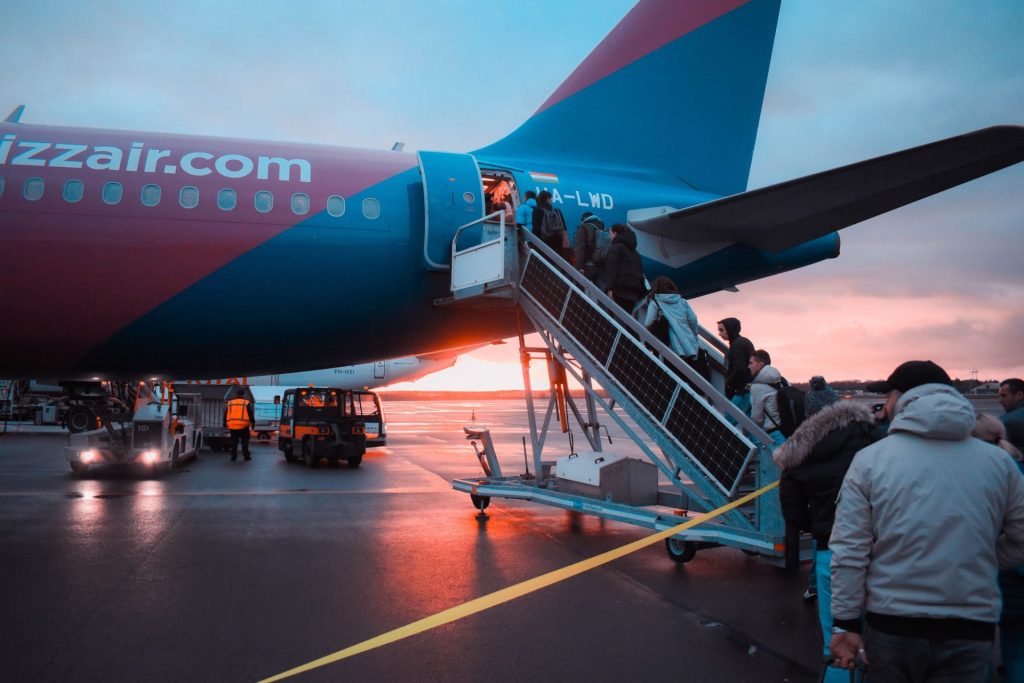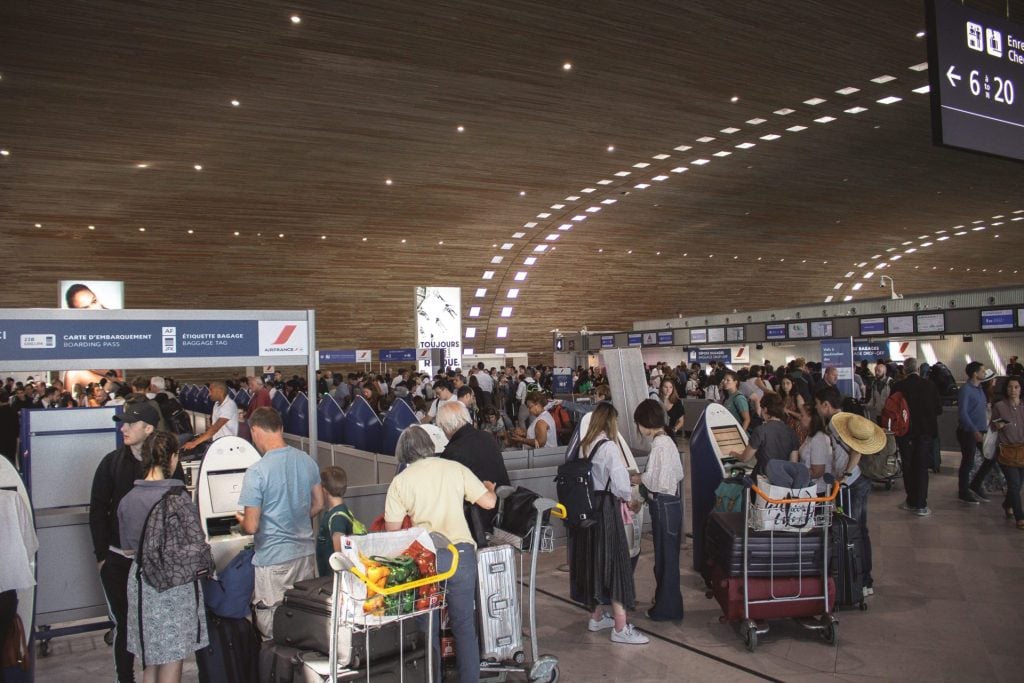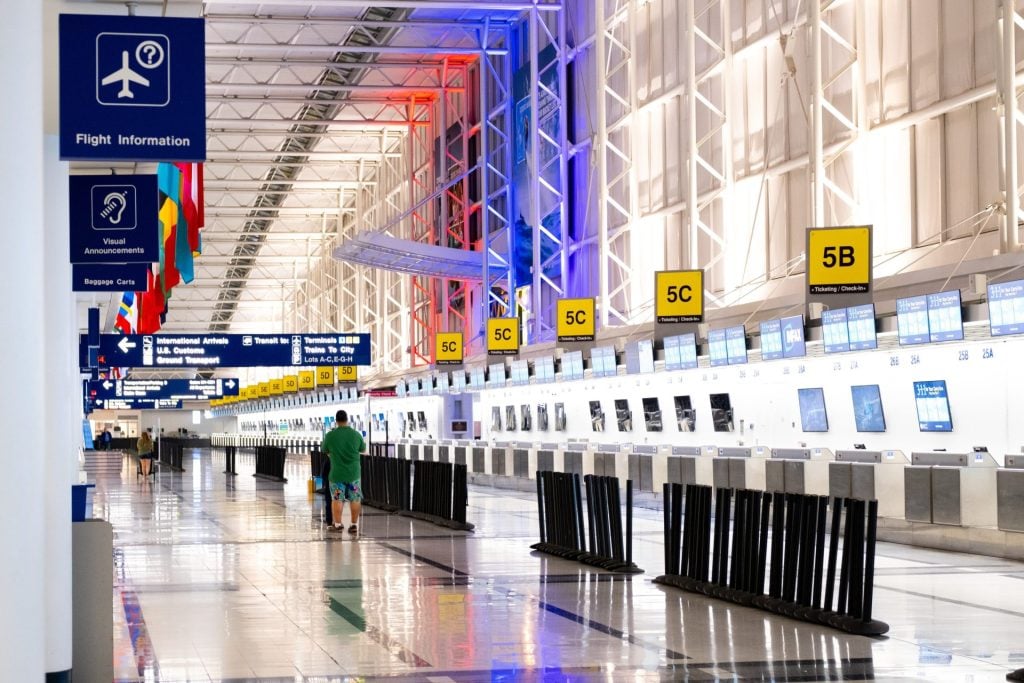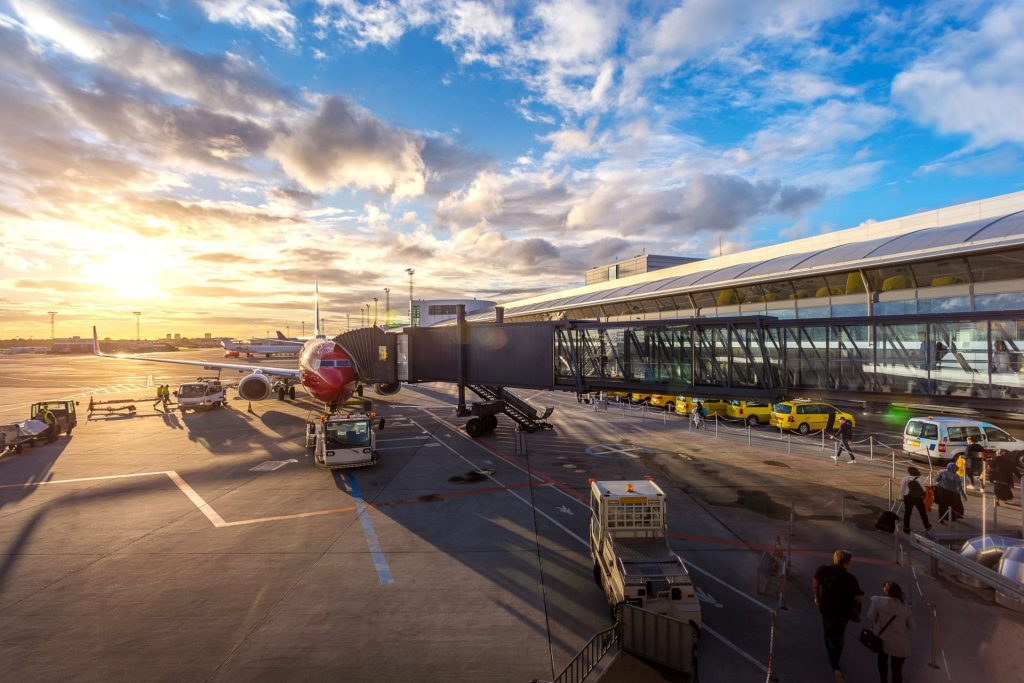BLOGS
Air Passenger Bill of Rights in the Philippines: Know Your Rights as a Traveler
This article will explore the Philippines’ Air Passenger Bill of Rights. Stay informed and empowered as a traveler, understanding your entitlements and the recent changes impacting Filipino departures.
Recently, the Bureau of Immigration has made headlines due to a potential change in how its officers exercise discretion when clearing Filipino passengers leaving the country.
As noted during the justice department’s budget deliberation at the House of Representatives, there’s an ongoing review of the discretionary power of these officers, particularly when deciding who should be subjected to secondary inspections. This move aims to reduce the scope of such discretion, providing clearer and more transparent guidelines for the departure of citizens.
In another noteworthy incident, concerns arose over the integrity of some airport personnel. A case where an employee from the Office for Transportation Security was caught allegedly swallowing stolen money has put the spotlight on ensuring strict adherence to laws and guidelines. Such events remind travelers of the importance of vigilance and awareness and to remain informed of their rights and responsibilities.
Join us as we explore further what these advancements signify for your travel and how the Air Passenger Bill of Rights is crucial to ensuring your rights as a passenger.
Table of Contents
Key Provisions and Passenger’s Rights
Enhancing Transparency and Accountability
Compensation and Redress Mechanisms
Challenges and Future Considerations
Other Laws Protecting Air Passengers’ Rights in the Philippines
- Republic Act No. 776 or the Civil Aeronautics Act of the Philippines
- Republic Act No. 9497 or the Civil Aviation Authority Act of 2008
- Joint Administrative Order No. 01 Series of 2012
- CAB Memorandum Circular No. 28 Series of 2012
- Republic Act No. 7764 or the Carriage of Goods by Sea Act
- International Conventions

What is the Air Passenger Bill of Rights
The Air Passenger Bill of Rights (APBR) in the Philippines is a joint administrative order by the Department of Transportation (DOTr) and the Department of Trade and Industry (DTI).
This regulation ensures the protection of air passengers by stipulating their rights in the event of flight delays, cancellations, and other inconveniences. It primarily focuses on providing clear guidelines on the compensation and treatment of passengers, like offering refreshments, hotel accommodations, and reimbursement in case of significant delays or cancellations.
The APBR also enumerates passengers’ rights in lost, delayed, or damaged baggage cases. Airlines must provide just compensation and immediate assistance, such as first aid or special assistance to persons with disabilities. The order ensures that airline policies remain transparent, fair, and in line with global standards, offering travelers a safeguard against potential airline mishaps.
Key Provisions and Passenger’s Rights
According to the Air Passenger Bill of Rights in the Philippines in the Official Gazette, the bill is a crucial legislation ensuring air travelers are treated fairly and justly. Here are its major provisions:
Source: Department of Transportation and Department of Trade and Industry
Right to Information
Passengers have the unequivocal right to receive accurate and timely information about their flights. This means airlines must inform passengers promptly about any changes, delays, or cancellations.
Right to Compensation
Passengers are entitled to compensation if a flight is delayed, canceled, or overbooked. The exact nature and amount of compensation may vary based on the specific situation, but the right to it is unequivocal.
Right to get help and payment if your flight is canceled.
- Passengers must be notified of cancellations 24 hours before ETD.
- Options for rebooking or reimbursement are available.
- Amenities include food, drinks, accommodations, etc.
- Full reimbursement for cancellations due to force majeure and security reasons.
Right to get help and payment if your flight is delayed, with some exceptions.
- Passengers are entitled to amenities for delays of at least three hours.
- Rights include refreshments, communication, rebooking, and endorsement to another carrier.
- A delay of six hours entitles passengers to additional compensation.
- Sufficient food and beverages must be provided for a tarmac delay of at least two hours.
Right to payment for baggage that is late, lost, or damaged.
- Passengers are entitled to ₱2,000 compensation for every 24-hour baggage delay.
- Refund of checked baggage fees if baggage is not delivered within 24 hours.
- Compensation for damaged or lost luggage is subject to relevant conventions.
- Presumption of loss applies if baggage is not delivered after seven days.
Right to payment if a passenger is injured or passes away.
- Compensation is governed by relevant conventions and inter-carrier agreements.
- Domestic flight compensation is based on the amount stipulated in international conventions.
Right to get any compensation immediately.
- Payment should be made available to affected passengers immediately.
- Payment can be received at the airport, the air carrier’s main office, or any branch.
- Payment must be available in check, cash, or a convertible document within 15 days of the incident.

Right to Assistance and Accommodation
For extended delays or flight diversions, airlines are obligated to provide passengers with necessary assistance. This can range from refreshments and meals to hotel accommodations, depending on the length of the delay.
Right in Case of Mishandled Baggage
Passengers are entitled to compensation for lost, damaged, or delayed baggage. Airlines must handle baggage with care and compensate passengers adequately if they fail to do so.
Right Against Denied Boarding
Airlines cannot deny boarding arbitrarily. Passengers are entitled to compensation and alternative arrangements in cases where boarding is denied, perhaps due to overbooking.
Right Against Discrimination
Discriminating against passengers based on disability or nationality is strictly prohibited. Airlines must ensure equal treatment of all passengers and provide assistance to those with special needs.
Enhancing Transparency and Accountability
The Air Passenger Bill of Rights (APBR) in the Philippines is a pivotal legislation that greatly emphasizes enhancing transparency and accountability within the aviation sector.
This bill, serving as a comprehensive air passengers summary, lays down clear guidelines on how air carriers should operate, ensuring that passengers know their entitlements during travel. The legislation aids in establishing clear standards of communication and service, which include:
- Enhancing Transparency and Accountability:
- Prioritizing Customer Satisfaction:
- Taking Necessary Measures to Prevent Inconvenience and Breaches of Passenger Rights.
A key aspect of the APBR is its clarity on air passenger rights, particularly when travelers face inconveniences such as flight delay or baggage mishandling. Moreover, the bill is not limited to domestic travel; it also offers provisions that align with global standards, ensuring that passengers on international flights are equally protected.
By delineating these rights clearly and comprehensively, the Air Passenger Bill of Rights bolsters confidence among travelers, affirming that the Philippine aviation sector prioritizes their needs and addresses potential grievances with transparency and fairness.
Compensation and Redress Mechanisms
The APBR not only underscores passengers’ rights to seek redress but also provides a structured process for addressing grievances. If travelers feel their rights have been infringed upon, they can file complaints and pursue suitable remedies.
The legislation also establishes a mechanism for addressing passenger complaints and disputes. In this regard, the Civil Aeronautics Board (CAB) acts as the overseeing regulatory body, ensuring the bill’s enforcement. Altogether, the APBR stands as a firm declaration of the Philippines’ dedication to fostering a transparent, fair, and passenger-focused aviation industry.
Challenges and Future Considerations
The Air Passenger Bill of Rights (APBR) in the Philippines has made significant strides in protecting airline passenger rights, but, like any evolving legislation, it faces challenges that need addressing. One primary concern arises with international flights.
Since international carriers operate under various jurisdictions and regulations, there’s a grey area regarding the uniform application of the APBR. This often leads to ambiguity in scenarios of flight cancellations or when a flight is delayed.
As the volume of both domestic flights and international flights increases, there’s a growing strain on air carriers to uphold the standards set by the APBR consistently. With the rise in flight cancellations and delays, passengers frequently find themselves needing clarification on their rights or the appropriate course of action. The challenge lies in the enforcement and ensuring that passengers are adequately informed and empowered.
For the future, there’s a pressing need to continually adapt the APBR to the changing dynamics of the aviation industry. With the advent of more low-cost carriers and an increasingly globalized world, the frequency of delayed or cancelled flights is bound to change.
The Philippines must consider refining the legislation, ensuring it is robust enough to handle evolving challenges while safeguarding passengers’ rights on domestic and international journeys. Furthermore, collaboration with international bodies and carriers can pave the way for a more harmonized approach to airline passenger rights, bridging gaps and reducing discrepancies in applying rights across borders.

Other Laws Protecting Air Passengers’ Rights in the Philippines
Beyond the Air Passenger Bill of Rights, other legislation is in place to safeguard the rights of airline passengers. These laws ensure that travelers are adequately protected, especially when they experience inconveniences such as a cancelled flight or prolonged flight delays.
For passengers caught in the frustrating loop of a delayed or cancelled flight, these laws offer guidelines on the compensations and amenities they are entitled to. As the country witnesses a growth in international passenger traffic, the need for such protective measures becomes increasingly paramount.
Most of these laws also mandate transparency measures; for instance, details about passengers’ rights are often required to be prominently displayed on an air carrier’s website. This ensures that domestic or international passengers are always informed and can confidently make travel decisions, knowing that robust legal frameworks uphold their rights.
Republic Act No. 776 or the Civil Aeronautics Act of the Philippines
Republic Act No. 776, commonly referred to as the Civil Aeronautics Act of the Philippines, stands as a foundational legal framework that governs the aviation sector in the country. Established through this Act, the Civil Aeronautics Board (CAB) emerges as the paramount regulatory authority overseeing all aspects of the aviation industry in the Philippines.
Beyond its regulatory role, the CAB carries the significant responsibility of ensuring the safety and welfare of air passengers, a testament to the Act’s commitment to prioritizing passenger well-being. The Civil Aeronautics Act underscores the Philippines’ dedication to a safe, efficient, and passenger-centric aviation industry.
Republic Act No. 9497 or the Civil Aviation Authority Act of 2008
Republic Act No. 9497, commonly known as the Civil Aviation Authority Act of 2008, is a significant legislation that founded the Civil Aviation Authority of the Philippines (CAAP). This body was instituted as the primary regulatory agency tasked with executing and overseeing the nation’s civil aviation guidelines and regulations.
A critical aspect of CAAP’s mandate is ensuring the Philippines complies with international aviation safety standards. Furthermore, it is responsible for supervising key aviation operations, including licensing airlines and airports, certification processes, and thorough inspections. In essence, the act empowers CAAP to act as the cornerstone of safe, efficient, and compliant aviation practices in the Philippines.
Joint Administrative Order No. 01 Series of 2012
Joint Administrative Order No. 01 Series of 2012 is a landmark directive jointly issued by the Department of Transportation and Communications (now referred to as the Department of Transportation) and the Civil Aeronautics Board (CAB). This crucial order delineates the guidelines and standards focused on safeguarding the rights of air passengers.
Its provisions emphasize transparent information disclosure, ensuring passengers are adequately informed about their flight status, terms, and conditions. The order also lays down clear protocols for passengers being denied boarding due to overbooking or other factors. Moreover, it establishes rights and compensatory measures related to flight delays, cancellations, and the proper handling of baggage.
The order also provides mechanisms for effective complaint resolution, ensuring that passenger grievances are promptly and justly addressed. Overall, this joint order reinforces the commitment of the Philippines’ aviation sector to prioritize passenger welfare and rights.
CAB Memorandum Circular No. 28 Series of 2012
CAB Memorandum Circular No. 28 Series of 2012 serves as a cornerstone document in the Philippine aviation sector, setting forth definitive guidelines and procedures concerning resolving passenger complaints against airlines. This circular elucidates the passengers’ rights and stipulates the airlines’ obligations.
This memorandum’s primary emphasis is ensuring that any grievances voiced by passengers are addressed promptly and equitably. With its enactment, passengers can have enhanced confidence in the aviation system, knowing a structured mechanism is dedicated to handling and resolving their concerns.
The overarching aim of this circular is to foster an environment of trust and transparency between airlines and their passengers, ensuring that all disputes are managed reasonably and efficiently.

Republic Act No. 7764 or the Carriage of Goods by Sea Act
Republic Act No. 7764, commonly known as the Carriage of Goods by Sea Act, is a fundamental piece of legislation in the Philippines that governs the transportation of goods across maritime channels. While its primary emphasis is on maritime transport, an essential aspect of this law also extends its purview to the aviation sector.
Specifically, it delineates airlines’ liability concerning any loss, damage, or delay of cargo transported by air. This dual focus ensures that carriers, whether by sea or air, adhere to uniform standards and practices when handling goods, safeguarding the interests of both consignors and consignees. The Act, therefore, serves as a comprehensive guide to the rights and obligations of all parties involved in transporting goods, ensuring clarity, fairness, and accountability in the process.
International Conventions
The Philippines, in its commitment to safeguarding the rights of air passengers, has aligned itself with global standards by becoming a signatory to multiple international conventions. Among these pivotal agreements are the Warsaw Convention, the Montreal Convention, and the Cape Town Treaty. These conventions play a crucial role in ensuring air travelers’ safety, security, and rights both within and outside the Philippines.
Passengers must be aware of these regulations, as they offer a framework for recourse when their rights may be compromised during air travel. The Philippines reinforces its dedication to promoting a transparent and passenger-centric aviation environment through these international conventions.
Final Thoughts
The Air Passenger Bill of Rights in the Philippines is a beacon of protection and assurance for travelers. The bill provides passengers with clear avenues for redress, from flight delays and cancellations to mishandled baggage and unforeseen complications.
The Philippines’ commitment to these global standards underscores its dedication to ensuring its aviation sector operates transparently, fairly, and with the utmost concern for passenger welfare. As travelers, understanding these rights is not just beneficial—it’s essential. It equips individuals with the knowledge to navigate challenges, making their journeys smoother and more secure.
How the Air Passenger Bill of Rights Reflects Brittany’s Standard of Living
The Air Passenger Bill of Rights, with its high standards and stringent guidelines, mirrors the principles of Brittany Corporation—a testament to luxury, quality, and exceptional service. Just as the bill ensures travelers experience the pinnacle of air travel, Brittany Corporation is dedicated to providing a luxurious living experience.
Our properties, from the grandeur of Portofino Heights and the romance of Amore at Portofino to the urban sophistication of Vista Alabang and the tranquil exclusivity of Forresta and Forresta Luxury Lots, are curated to offer unparalleled luxury and comfort. The dedication to quality in the Air Passenger Bill mirrors Brittany’s unwavering commitment to elevating living standards, ensuring that every resident experiences an opulent and serene lifestyle.
Suggested Read: Villar Completes PICC Conversion Into Covid-19 Treatment Facility
Suggested Read: Understanding Travel Tax: Philippines’ Tourist Fee Decoded
Suggested Read: Republic Act No. 11928: Everything You Need To Know
Suggested Read: Civil Service Exam 2023: Schedule And Requirements
Suggested Read: Fire Insurance Claim For Your Home Made Easy
















